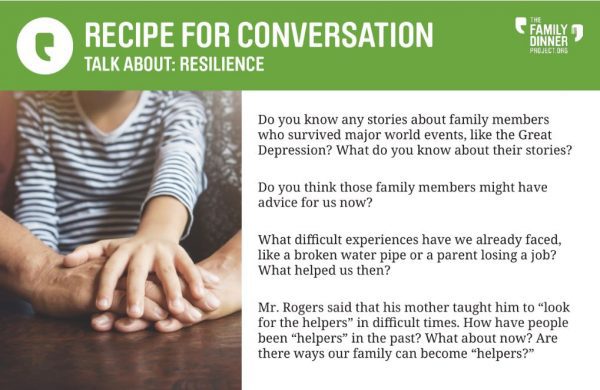Newsletter: July 2023
Family Dinner After Divorce

“I can’t get them to eat anything else…and it doesn’t help that their mother just lets them have whatever they want when they’re at her house!”
That was one of the frustrated outbursts from a family member of mine, many years ago, talking about his two young kids and their very limited diet. He faithfully tried to hold to a family dinner routine on the nights he had custody of the kids, but found himself stuck in a rut of only four accepted menus, lots of fussing, and deep disagreements with the children’s mother about issues like table manners and chores. I don’t know what his ex-wife would have said about the mealtime situation on her end, but I’m sure she had similarly emotional conversations with the people in her life. Dinner had always been a sticking point when they were all living in the same house; it only took on new complications when they were dealing with dinner in two households.
All families change over time. Sometimes that change means separation or divorce. Sometimes those changes lead to new blended families, with stepparents and stepchildren in the mix as well. And no matter how gracefully or amicably all of the adults work to manage the transitions involved, there are bound to be bumps in the road. Family dinner, a seemingly simple daily routine, can actually become a prime battleground that exposes all of the tensions under the surface.
“Dinner time…reminds children of how dramatically their family has changed,” writes Dr. Patricia Papernow in her article on Steps to Ease Dinner Stress for Stepfamilies. “Study after study tells us that when parents recouple, children lose a significant amount of parental attention. They also have to deal with yet another in a series of unwelcome changes. The dinner table is a prime place where all of these dynamics get played out.”
Even if there is no remarriage to contend with, there are plenty of dinnertime challenges at work when one household becomes two. Dr. Anne Fishel, co-founder and Executive Director of The Family Dinner Project and Director of the Family and Couples Therapy Program at Massachusetts General Hospital, offers these tips for coping with dinner after divorce:
- Keep routines familiar as much as possible. Kids need consistency, and Dr. Fishel says bedtime and mealtimes are two places where parents can focus their efforts. If children are used to eating dinner at 6:00, having eggs on Friday nights, or playing “Would You Rather?” while they eat, keeping those routines in place across both households will provide stability and comfort.
- Dirty laundry doesn’t belong at the dinner table. In other words, dinner is not an opportunity to ask kids probing questions about the other parent – especially sensitive issues like dating or mental health. “One of the hallmarks of a healthy two household family is one where the kids feel free to discuss with each parent what they did or felt in the other home, without feeling disloyal or being interrogated about the other parent’s behavior,” Dr. Fishel says.
- Be comfortable with differences. At first, keeping mealtimes similar in each household will help with the transition, but it’s inevitable that both homes will start to create their own routines over time. If there are big differences, like one household banning sugar while the other serves dessert each night, parents can help kids feel more secure – and less like their loyalty is being divided – by communicating their comfort with the different choices. “Mom lets you have ice cream sundaes on Saturday nights? That sounds fun. What do you like on your sundaes?”
- …And don’t use those differences as a weapon! Dr. Fishel points out that sometimes, parents in an acrimonious situation might try to become the “favorite parent” through special treats or activities – often, ones that are directly opposed to what the other parent would do. It’s okay to decide that you’re comfortable allowing kids to eat dinner in front of the TV on Sunday nights; it’s another thing altogether to use that choice to stir conflict. “I know your Dad is very uptight and doesn’t let you eat in front of the TV, but you can do that here” sets kids up to feel divided loyalties. “Let’s try a new fun Sunday tradition together! We can pick a movie to watch while we eat” keeps things neutral.
- Lastly, it’s okay to notice that things are different now. From the kids’ perspectives, there’s always going to be an empty seat at the table in both houses. Dr. Fishel recommends asking kids to talk about what feels different, what feels the same, and what you can do together to make mealtimes more enjoyable. Sometimes, adding in those new little rituals for each household – like ice cream sundaes, movie nights, or even inviting friends to join you one night a week – is the best way to make dinner feel good again.
Food

Speaking of fun new dinner rituals, summer is a prime time to take dinner outside. Try mixing things up with some Family Picnics!
Fun

After divorce, kids need to be reminded that they are still part of a big and beautiful family tree. This dinner game helps connect them to family history in a fun and challenging way!
Conversation
Getting through a big life change like divorce takes courage and resilience. Explore both topics with these conversation starters.


Recent Newsletters
- Ask The Family Dinner Project - February 2026
- Warming Up Winter - January 2026
- Home, and Homemade, for the Holidays - December 2025
- Thanksgiving Traditions, Old and New - November 2025
- Food as Comfort and Care - October 2025
- The State of Family Dinner - September 2025
- Back to School Dinner Success - August 2025
- What’s Your Meal Planning Personality? - July 2025
- A New Guide to Gathering - June 2025
- Celebrating 15 Years of The Family Dinner Project - May 2025
- New Research: Family Dinners Boost Happiness - April 2025
- Just the Two of Us - March 2025
